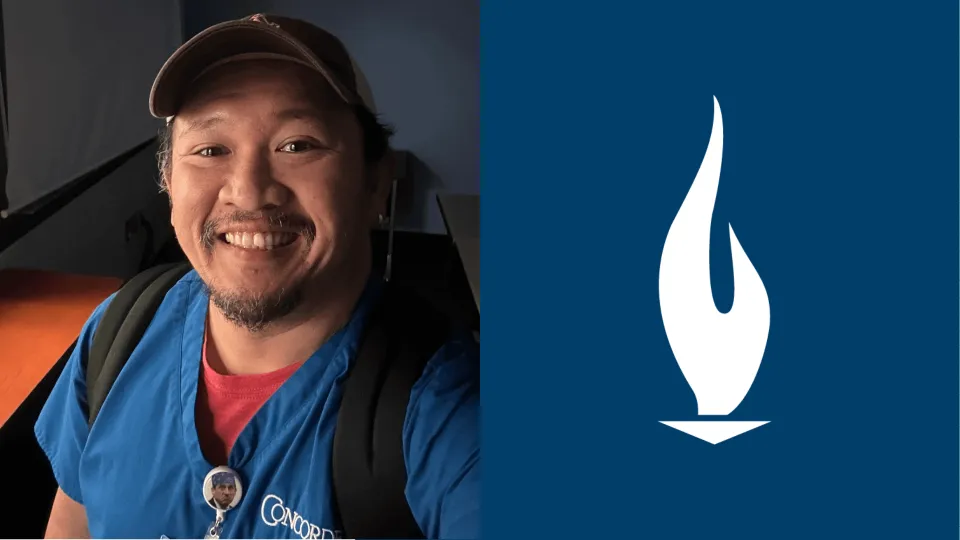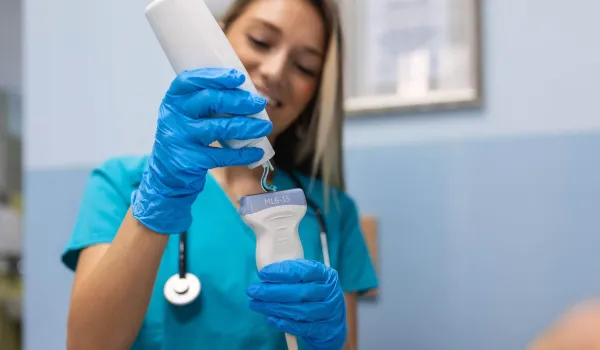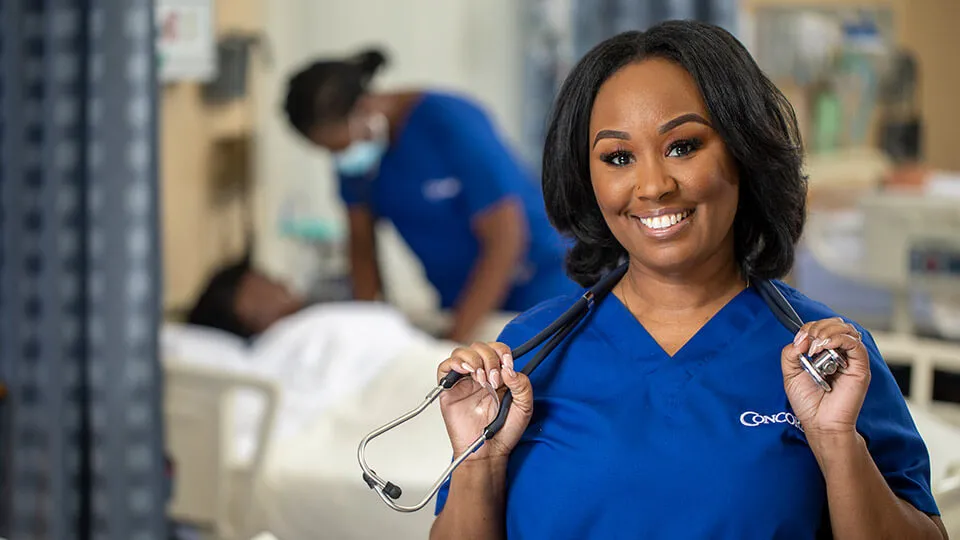
Becoming a practical nurse can offer an exciting and rewarding career for individuals who have an interest in the medical industry. Practical nurses work one-on-one with patients, providing them with basic medical care. They also work closely with doctors, surgeons, and other health care practitioners. A licensed practical nurse may work in a variety of locations, such as hospitals, extended care facilities, nursing homes, private homes, and physicians' offices.
Individuals who want to pursue a career in practical nursing can start the journey by enrolling in a practical nursing diploma program. Students may be able to complete the nursing program in as little as 13 months, but every case is different.
What Is a Practical Nurse?
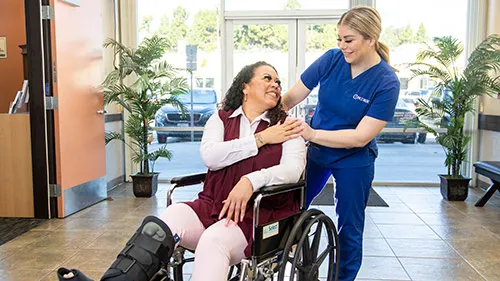
A practical nurse performs many tasks that help patients who are in a medical setting. They provide basic care for the patients to help them during their stay in a health care facility. Some of these tasks are designed to make them feel more comfortable, while other tasks provide a medical function.
Is a Practical Nurse the Same as an LPN?
Yes. A licensed practical nurse (LPN) is the same as a practical nurse. In fact, you must be licensed to be a practical nurse. Some people simply drop the term “licensed” and refer to the person as a practical nurse. These terms can be used interchangeably.
What Does a Practical Nurse Do?
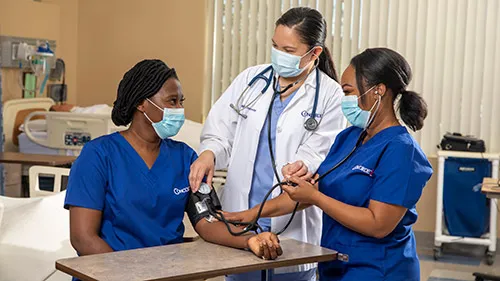
Practical nurses play an important role in all medical settings. They are often the first contact the patient has with a licensed medical practitioner. An LPN helps the patient get situated in the room, checks their vital stats, and begins the intake process.
Once a patient has been admitted to a hospital or other medical facility, a practical nurse provides any necessary assistance with things like dressing, eating, and other comfort care.
Practical Nurse Responsibilities
A practical nurse may fulfill a range of responsibilities.(1) Some of these include:
- Change wound bandages and dressings.
- Take vital signs and record them in the patient's chart.
- Deliver medication to the patient.
- Assess patient psychological needs and provide emotional care and support.
- Talk to patient families about the care or condition of the person.
- Support patients through difficult treatments and diagnoses.
- Provide injections and immunizations.
- Present patient information to doctors and RNs.
- Prepare patients for surgical procedures and exams.
- Educate patients on medical treatment, side effects, surgical aftercare, and symptoms.
Steps To Become a Practical Nurse
If you're considering moving forward with training for a career in practical nursing, there are certain steps and licensing requirements you need to follow. To become a practical nurse, you don't need an associate or bachelor's degree, like many careers require. However, you will need to follow a plan of action and follow certain steps.
Fulfill the High School or GED Requirements
Even though you don't need a degree, you will need to ensure that you have your high school diploma or passed the GED. This enables you to go to the next step, which is to enroll in an LPN program.
Register for a Licensed Practical Nurse (LPN) Program
A practical nursing program may be completed in only 13 months. The coursework involves practical, hands-on work as well as academic, in-class coursework. The broad topics generally covered in a practical nursing program include everything from the basics of science and biology to child development and aging.
During the program, students can put the things they learn in the classroom into practice by participating in applied clinical experiences. Other hands-on opportunities provide students with more experience, such as going on clinical rotations with other health care professionals. In addition, you will have the opportunity to use simulations and other hands-on practice to prepare you for a future career in nursing.
Pass the LPN Exam
Once you complete the practical nursing program, you must take and pass the National Council Licensure Examination for Practical Nurses (NCLEX-PN). People must register for this test when they have completed the nursing program.
Is Practical Nursing School Hard?
Any type of medical schooling will have a degree of difficulty. The practical nursing program is no exception. Since the program is only 13 months in duration for some people, it can be more intense than other programs that last longer.
During the program for your practical nursing license, you will take rigorous coursework involving the following topics:
- Nursing interventions.
- Preventive nursing care.
- Therapeutic nursing care.
- Rehabilitative nursing care.
- Restorative nursing care.
Are You Cut Out To Be a Nurse?
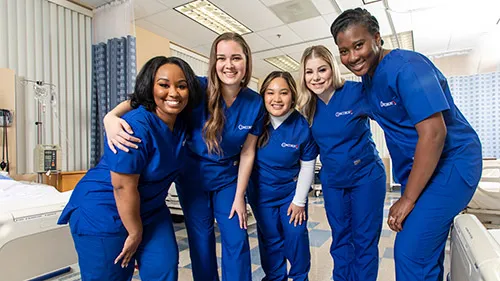
5 Top Characteristic Traits a Nurse Should Have To Be Successful
If you have a passion for helping others, you may be an ideal person to go into the nursing field. Of course, there are other requirements you may need for this position that relate to your physical stamina and mental capabilities.
People who pursue a career in practical nursing should have the following characteristics:
- Interpersonal skills: Being a nurse involves working with patients and other medical professionals regularly. You will be interacting with people daily. So, it's essential that you are a good communicator and enjoy being around others.
- Caring: Nurses must be able to show warmth and understanding to people who are going through a difficult time. The patients may be in pain or frightened about their medical condition. As a practical nurse, you must show a kind and caring demeanor.
- Calm under pressure: In medical settings, nurses never know what to expect. They may have to deal with emergency problems that are unexpected. Patients may become very sick while under their care. The practical nurse must remain calm during these high-stress times so the patients don't get upset.
- Physical ability: Physical stamina and fitness is an important part of being a licensed practical nurse. You may have to help move a patient or steady a patient as they walk. In addition, you'll be on your feet much of the day, walking and standing. This requires a good deal of physical strength and ability.
What Is the Career Outlook for Practical Nurses?
The employment future for practical nurses (2) is favorable. According to the U.S. Bureau of Labor Statistics, the licensed practical nursing outlook is expected to grow 5% from 2022 to 2032. This is typical and in line with other occupations. The projected numbers for licensed practical nurses are about 54,400 each year over the decade. As people age out of the position, new applicants are needed. Also, some people may choose to pursue an RN degree, making more openings for LPNs.
Selecting a Nursing Program
Choosing the right practical nursing program is a critical step in fulfilling your dream of being a nurse. When reviewing career colleges for nursing, check to ensure that they have a robust academic program that allows students to participate in real-world opportunities. Getting a chance to work alongside doctors is an important part of a medical professional's education. Also, working with a career college that is widely recognized will give you a head start in your journey.
Concorde's Practical Nursing Diploma Program
The practical nursing diploma program at Concorde Career Colleges is an ideal choice for those interested in a health care career. Concorde provides an experience that includes academic and hands-on coursework for students who wish to pursue nursing.
With several Concorde Career Colleges in the U.S., participants will be exposed to real-life experiences that prepare them for a life of nursing. Concorde's practical nursing program may be able to be completed in 13 months if you follow the curriculum guidelines. You can consult with an academic advisor about starting the admissions process.
Start the Journey With Concorde Career Colleges
Concorde Career Colleges is recognized as an ideal choice for prospective students who want to begin a career in the health care field. You can pursue the practical nursing program and be prepared to take the National Council Licensure Examination in a little over 13 months.
If finances are an issue for you, don't worry. We offer several financial aid options. Our financial aid advisor will walk you through the application process. Additionally, federal funding and Concorde scholarships exist for eligible participants. These financial options may help defray the costs of obtaining an education.
Reach out to our program office for further details about how to train for a career in this health care field. Fulfill your dream of being a licensed practical nurse by contacting Concorde's admissions office today to request information.
Footnotes:
WebMD. (2021). What is a licensed practical nurse? https://www.webmd.com/a-to-z-guides/what-is-licensed-practical-nurse
U.S. Bureau of Labor Statistics. (2022). https://www.bls.gov/ooh/healthcare/licensed-practical-and-licensed-vocational-nurses.htm#tab-6
Take The Next Step Towards a Brighter Future
Interested in learning more about our Practical / Vocational Nursing program?
We have a Concorde representative ready to talk about what matters most to you. Get answers about start dates, curriculum, financial aid, scholarships and more!

